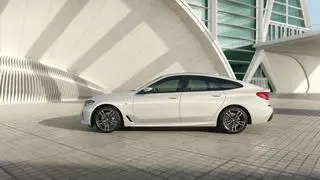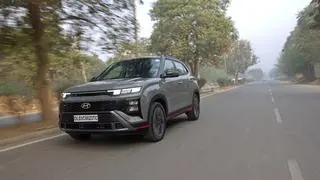For someone who has just flown in from Prague to Mumbai with a stopover to boot, Guillaume Sicard does not look remotely jet lagged when we meet at a suburban hotel in Mumbai.
Till recently the president of Nissan India operations, Sicard has just taken on a critical marketing leadership role for Renault in the Asia-Pacific region with special emphasis on China and South Korea. The good thing is that this move is within the family given that Renault and Nissan have been global allies for nearly two decades and Sicard is familiar with both companies.
ThrowbackWhat has prompted this meeting is to hear the former Nissan chief look back on his three-year tenure in India where he played a key role in setting up operations. When he first came in, the Japanese automaker had just called it quits with its former network distribution partner and was all set to go solo.
There were just three people in sales and marketing with no semblance of being structured like a global company. “We had to build the team and and 250 people were hired for Nissan,” recalls Sicard. The next big move was relocating the sales office from Mumbai to Gurgaon near Delhi.
“This was imperative because I could not spot the talent we needed in Mumbai,” says Sicard. “All the people we could find were from northern India. The cost of running operations also turned out to be more cost-effective in Gurgaon compared to Mumbai.”
Renault was already working out of Gurgaon too and Nissan ensured that its new office was modern and open with a creative room and even a swing! The former president reiterates that Nissan India Sales and Marketing is an efficient place with loads of talent. “I am very impressed with the mid-management team, which is dedicated, talented and work in a pleasant environment,” he says.
Buliding strong bondBeyond this, Sicard also realised that it was important to build a strong bond with the plant in Chennai. “I would say it was a bit independent before from sales and marketing and today we have a much closer relationship,” he says. The idea was to align better where the plant needed to understand where was market is going and anticipate variations both here and overseas. “This relationship has helped Nissan manage production, plan stock control, improve the connections with the world markets and today it has an efficient supply chain. The plant is not overloaded with stocks,” says Sicard.
While these initiatives were welcome, the bigger task on hand was to work on the future of Nissan India and strive towards a market share of at least five per cent. This is where the twin product strategy of Nissan and Datsun becomes crucial to go beyond the present level of barely two per cent. Sicard is candid enough to admit that the Datsun journey has been a challenge since the time it was launched three years ago when Nissan was still young in India. “We launched it in a country where there is little awareness and which needs advertising to build a brand. Our advertising spend was very limited,” he says.
Yet, the going has not been so bad lately given that the Datsun brand reported sales of over 45,000 units in 2016 with the more recent redi-GO doing particularly well. “Managing two brands (Nissan and Datsun) is complicated and there is good reason to be proud of what has been achieved so far,” says Sicard. “Yet, this is only the beginning and the job on hand is to push redi-GO, which has immense potential.”
Mature organisationAccording to him, today’s Nissan India is a mature organisation compared to what it was three years ago with good processes, talent and coordination between teams. “Of course, it is still not perfect and needs new products but is on the right track,” he says.
What was interesting in this entire overhaul was explaining to headquarters in Japan that India was a different ballgame for business. As Sicard says, one needs to get used to the different parts of the country as well as the unique Tier 1/2/3 layering.
“India represents many ways of living with many standards, which means Nissan needs to find a commonality and adapt and work from there. It takes a lot of time,” he adds. Then comes accepting the reality of two big brands in the form of Maruti and Hyundai dominating the landscape. He believes that Nissan now has “a good recipe and understanding” of the market.
Going forward, Nissan will be positioned as the more premium global brand for India with the best in technology. Datsun is more about access to four-wheel mobility with good design and efficient functionalities with the best-in-class price and total cost of ownership.
Datsun will also evolve with better design keeping pace with growing affluence levels in India. “Datsun will offer tremendous value for money and redi-GO has set the ball rolling,” says Sicard. By the end of the day, the brand is all about value and “flattering your ego” where there will be plenty to show in terms of styling, design and features. “This might be something we did not understand five years ago when we started,” he concedes.
There could be also be some interesting opportunities in the cab aggregator space too especially with brands like Ola. As Sicard says, markets are going beyond ownership of cars and it is important to keep this in mind when it comes to mobility and connectivity. For now, he has his hands full with the new assignment at Renault even while there will be reasons to be pleased with his Nissan India tenure.








Comments
Comments have to be in English, and in full sentences. They cannot be abusive or personal. Please abide by our community guidelines for posting your comments.
We have migrated to a new commenting platform. If you are already a registered user of TheHindu Businessline and logged in, you may continue to engage with our articles. If you do not have an account please register and login to post comments. Users can access their older comments by logging into their accounts on Vuukle.